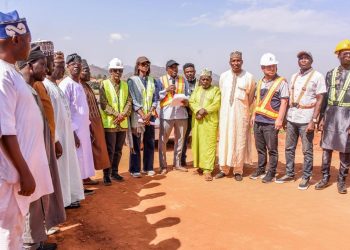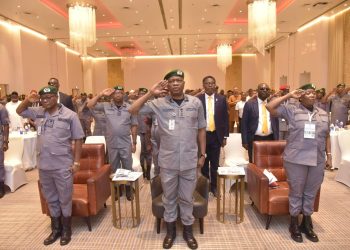By Nkechi Eze
As part of activities marking the 8th United Nations Global Road Safety Week, the corps marshal Federal Road Safety Corps (FRSC) Shehu Mohammed, has reiterated the urgent need to make Nigerian roads safer, particularly for vulnerable users such as pedestrians and cyclists. The corps marshal stated this during a press briefing held to commemorate the biennial event, which is coordinated globally by the World Health Organization (WHO) in collaboration with the United Nations Road Safety Collaboration (UNRSC).
The Corps marshal emphasized that this year’s theme, “Make Walking Safe, Make Cycling Safe,” reflects a growing global commitment to prioritizing non-motorized transportation in road safety strategies.
The FRSC boss noted that in Nigeria, walking and cycling are more than recreational activities; they remain primary modes of transport for millions, including schoolchildren, traders, and workers. However, the roads used by these groups are often unsafe due to inadequate infrastructure such as sidewalks, pedestrian bridges, and designated cycling lanes.
He highlighted that driver’s behavior including excessive speeding, reckless driving, and failure to yield to pedestrians was identified as a major contributor to road crashes, particularly in rural and semi-urban areas where awareness and enforcement are limited. The corps marshal also pointed to weak compliance with regulations designed to protect vulnerable road users.
Presenting data to underscore the scale of the challenge, the FRSC boss disclosed that Nigeria recorded 10,617 road traffic crashes in 2023, resulting in 5,081 deaths and 31,874 injuries. Although crashes reduced by 10% in 2024 with 9,570 incidents, fatalities rose by 7% to 5,421, while 31,154 persons sustained injuries. The Corps marshal described these figures as not just numbers, but a reflection of lives lost, families devastated, and communities affected.
He further disclosed that “the FRSC has intensified public awareness campaigns through religious institutions, the media, and schools, while expanding its Road Safety Clubs and structured safety education initiatives for children and youth.
“The agency is also engaging with federal and state traffic authorities to incorporate non-motorized transport features into both new and ongoing road projects.
“Additionally, FRSC patrol teams are actively monitoring high-risk routes to enforce speed limits and ensure the safety of pedestrians.
“Data-driven interventions are being employed through the Road Traffic Crash Database Management System (RTCDMS), enabling targeted enforcement, surveillance, and rescue operations.
“The Corps reaffirmed its alignment with the Marrakech Declaration adopted at the 4th Global Ministerial Conference on Road Safety held in Morocco in February 2025.
“The declaration upholds the principle that transport systems must be people-centered and designed to eliminate fatalities and serious injuries, with safety never sacrificed for cost or speed.” He said.
The corps marshal emphasized that the UN Global Road Safety Week serves as a powerful reminder that walking and cycling should not be life-threatening activities. He called for renewed support from all sectors, including governments, the media, transport unions, civil society, and the wider community of road users.
Corps marshal Shehu Mohammed concluded by urging collective commitment to a safer Nigeria where no life is lost needlessly on the roads.













